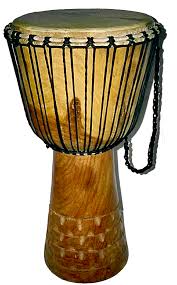
Quick Fact About The Tiv People
They occupy the middle belt region of Nigeria, comprising of states such As Benue, Taraba, Nassarawa and Plateau.
They can also be found in Cameroun.
They are predominantly Christians although Islam is also practiced among them.
They are great farmers producing crops such as yam, cassava, maize, mellon etc
Tiv land stretches from Agede in Benue in the south east, Iyala, Gekem and Obudu in Cross River, Chambam and Junkun of Taraba in the northeast and Idoma of Benue in the south.
History of the Tiv People
Tiv became known to the outside world during an expedition lead by Lieutenant-Colonel Huge Trenchard from 1907 to 1908.
Tiv people descended from a man known to many as Takurudu, Shon, Gbe,Awanje And Karagbe. He was regarded as the founding father of Tiv.
He gave birth to two children Ichongoa and Ipsu. Ichongo gave birth to Gondo, Ikyura, Nongo, Ihar, Mase and Turan,while Ipusu gave birth to Shitire, Kum, Kpar.
These ten children are the direct descendants of the Tiv people. According to its history, Tiv first settled in Swerm but due to overpopulation they spread from the hills of the south eastern Tivland to
the middle belt region.
the middle belt region.
Culture and Tradition of The Tiv
Culture is generally refers to the way of life of people. The people of Tiv have some of the most unique cultures in Nigeria. Their traditions have been passed from one generation to another. I would be considering some of these under the following subheading:
- Marriage
- Dressing
- Music
- Food
Marriage
Marriage in Tivland is rooted in the rich culture of the Tiv people. There are four ways marriage is sealed in Tiv land;
- Marriage by exchange
- Marriage by capture
- Marriage by purchase
- Marriage by bride price
Mariage by exchange (yamshe): In this type of marriage, the man looking for a wife simply approaches another man looking for a wife also. The marriage will only come to fruition when both parties have women to exchange; such as daughters or wives.
Marriage by capture (kwase-ngohol): Here a woman is forcefully snatched from her husband during travel. This type of marriage was rampant during the early Tiv migration and it was responsible for majority of the inter-clan wars. Another form of marriage by capture occurs when a man visits another country to lure a woman away from the country.
When the man visits another country he stays in the house of a man whose mother is also from his country. He then sends his friends or relatives to look for unmarried girls for him.
After he selects the girl he likes, he would then visit the house of the girl.
Also the men who make up this group would go to different communities to perform dances. When ladies come over to watch them, they are usually attracted to some of the men.
Eventually the men would take some of these ladies as their wife back to their country. This process of obtaining a wife is called Iye; a honorable marriage of capture as opposed to the forceful marriage of capture described above.
Marriage by Purchase: This type of marriage is known as kwase u sha uikya. Here girls are captured as slaves and married off.
Marriage by bride price: This is the marriage currently been practiced in Tivland. It became prominent as a form of marriage during the European administration, when they decided to abolish other forms of marriage.
The European administration insisted that men should pay bride price before he can take any girl as his wife.
The man would continuously send gifts to the girl and her family. When the girl’s family is satisfied with his gifts, he is then informed on come and pay the bride price for the girl.
Most of the time, the couples would elope without paying the bride price. The bride price is paid later when the man is ready.




